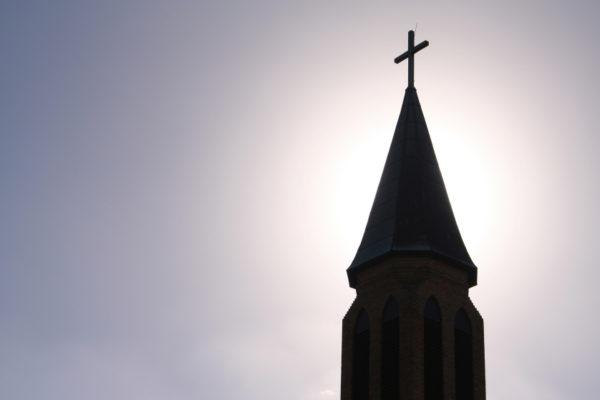Evangelical Christians in the U.S., particularly those who are white, overwhelmingly support President Donald Trump. In fact, polls indicate that as high as 78% approve of Trump’s performance as president, and more than 57% say that God had a hand in Trump’s election. Many white mainline Protestants (48%-49%) as well as white Catholics (44%-52%) also approve of the president, with Trump’s lowest approval rating found among black Protestants (12%) and religiously unaffiliated Americans (20%-24%).
Being white and religious, it seems, predicts fondness for our current president. We need to hear from additional religious leaders — Christian and otherwise — and especially leaders whose perspectives differ.
Turns out that disapproving of the president comes with a price, especially in the evangelical world. Just ask Mark Galli, former editor of the longtime leading magazine for Christian evangelicals, Christianity Today.
Galli recently penned an editorial that not only noted his disapproval of the president’s performance but also questioned his character, values and fitness for the presidency. Immediately, Trump’s supporters closed ranks, condemning Galli and his magazine. And 200 influential evangelical leaders published an open letter stating, “We are proud to be numbered among those in history who, like Jesus, have been pretentiously accused of having too much grace for tax collectors and sinners … and we take deeply our personal responsibility to render unto Caesar what is Caesar’s — our public service.”
Unfortunately, moderate and progressive Christian leaders have been comparatively silent on these matters and slow to concur with Galli’s observations, which leaves these evangelical leaders’ perspectives unchallenged and unchanged.
There are exceptions. A group called Red Letter Christians has organized rallies to protest what they term “toxic Christianity” and “the gospel of Trump.” Another group, Vote Common Good, works to mobilize “people of faith to make the common good their voting criteria and to pursue faith, hope and love for a change on election day 2020.” But unlike groups of politically minded evangelicals, many of which are heavily resourced and garner public support, these progressive groups are financially strapped and have had minimal impact on the public discourse about Trump.
A recent study by the Pew Research Center points to reasons that many clergy may remain relatively silent on political matters. Nearly half of Americans say they are unaware of the political affiliations of their clergy. Perhaps the reason is that 63% of U.S. adults say that places of worship should be free of political expression.
The only major religious groups whose members say otherwise, namely, that churches should express their social and political views, are, it turns out, evangelical Protestants (55%) and historically black churches (54%). Though typically considered politically more progressive, only 35% of mainline Protestants think churches should express social and political views.
It has not always been this way. Historically, progressive Christians, including clergy, have stepped willingly into the political fray to face down systemic ills, unjust practices and immoral behaviors, regardless of who needs to be addressed. These leaders have accepted a call to service as agents of political change. They have done so out of religious conviction.
Think of Martin Luther King Jr. and his leadership of the civil rights movement, or Dorothy Day’s efforts for justice as a layperson in the Catholic worker movement, or of Reinhold Niebuhr’s championing human rights and his subsequent influence on leaders such as Martin Luther King Jr., Jimmy Carter and Madeleine Albright. In each case, deeply held convictions grounded in biblical values prompted widespread calls for immoral policies, practices and behaviors among a nation’s leaders and people to stop. None of these religious leaders stayed silent about political matters.
We need leaders in all faith traditions to risk hard conversations about political matters. We especially need leaders who serve congregations and have the ear of their adherents to state concerns they have.
Alternative perspectives exist, ones that are more in keeping with the life and examples of Jesus. The country needs to hear these perspectives.
Allan Cole Jr. is a professor and the senior associate dean for academic affairs in the Steve Hicks School of Social Work at The University of Texas at Austin. He is a graduate of Princeton Theological Seminary and Columbia University.
A version of this op-ed appeared in the San Antonio Express News, Austin American Statesman, Amarillo Globe News, and the Lubbock Avalanche Journal.




